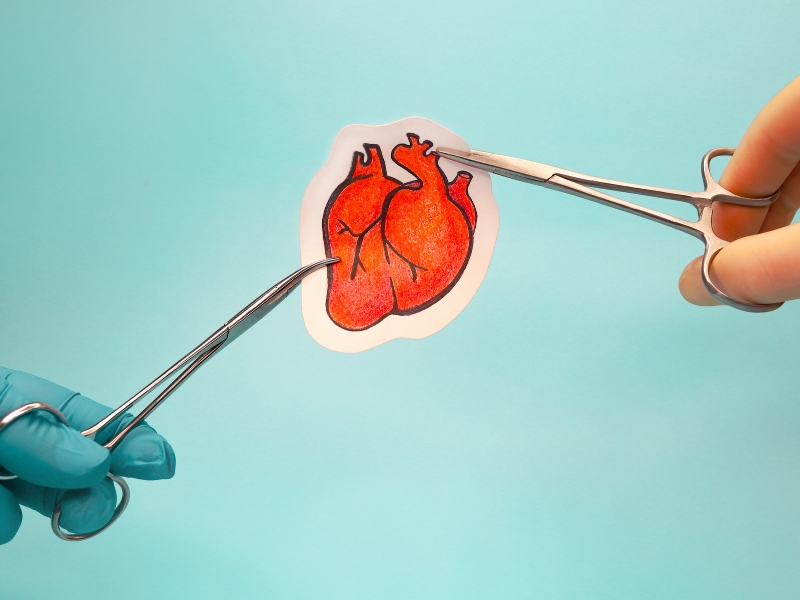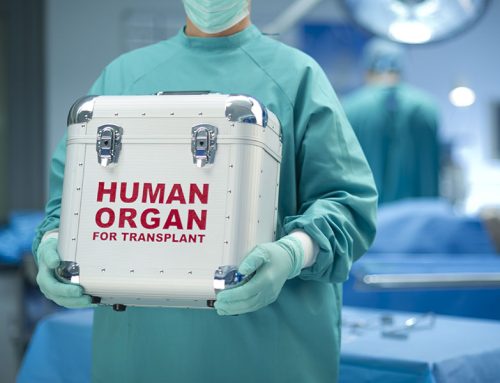
Coenzyme Q10 Research in a land down under. Teams of Coenzyme Q10 researchers at The Alfred teaching hospital in Victoria, Australia, have shown significant results, results that translate into fewer hospitalizations for the patients and into savings for the national health care system.
Professor Franklin Rosenfeldt, MD and Fellow of the Royal College of Surgeons (Edinburgh), is an adjunct professor and cardiac surgeon in the Department of Surgery, Monash University, a university based in Melbourne, Australia. Dr. Rosenfeldt is also the administrative supervisor of The Integrative Cardiac Wellness Program at The Alfred, a tertiary teaching hospital in Prahran, (a suburb of Melbourne), Victoria, Australia.
Q10 research at The Alfred
The Alfred’s services include heart and lung replacement and transplantation as well as many other specialized services. For 30 years, Dr. Rosenfeldt has been conducting cardiac surgery research at The Alfred. His special research interest has been the protection of the heart against damage during heart surgery. In this context, he has done much research on the role of Coenzyme Q10 and fish oil in the management of heart disease.
Dr. Rosenfeldt’s research interests
Actually, Dr. Rosenfeldt’s concern for the welfare of heart patients extends beyond the use of Coenzyme Q10 and fish oil supplements and includes the use of mind-body medicine, music, meditation, stress reduction, and physical exercise. In this article, I want to summarize some of the Coenzyme Q10 studies that Professor Rosenfeldt has been involved in.
Second author on the Q-Symbio study
Now, where to start? That is easy. Dr. Rosenfeldt was the second author, behind Dr. Svend Aage Mortensen, on the article reporting the results of the Q-Symbio study in the December, 2014, issue of the Journal of the American College of Cardiology Heart Failure professional journal.
The Q-Symbio study was an international multi-center study, and Dr. Rosenfeldt led the Australian part of the study. Q-Symbio showed that Q10 supplementation results in significantly fewer adverse cardiovascular events, including fewer hospitalizations and fewer deaths.
Supplementation with Q10 and other micro-nutrients
In 2010, Dr. Rosenfeldt and a team of colleagues reported on the beneficial effects of pre-surgery supplementation with a combination of micro-nutrients:
- Coenzyme Q10
- alpha-lipoic acid
- magnesium orotate
- selenium
- fish oil (containing omega-3 fatty acids)
The study enrolled 117 patients who were scheduled to undergo elective coronary artery bypass graft and/or heart valve surgery. The patients’ average age was 65 years; the ratio of male to female patients was 3:1.
Randomized, double-blind, placebo-controlled study of Q10
The researchers randomly assigned the patients, in double-blinded manner, to a micro-nutrient treatment group or to a placebo control group. The purpose of the research was to use the micro-nutrient treatment for a period of up to two months before surgery and for at least one month after surgery to reduce the harmful effects of the oxidative stress caused during the surgery and to improve the elderly and high-risk patients’ recovery from the surgery.
Less damage to the heart = shorter hospital stays
The results of the study showed that the use of the Coenzyme Q10 and the other micro-nutrients prior to and following surgery did reduce the extent of damage to the heart muscle and did shorten the length of the hospital stay after surgery. The micro-nutrient pre-treatment of surgery patients was safe; there were no clinically significant side effects (1).
Q10 supplementation before heart surgery safe
Dr. Rosenfeldt’s micro-nutrient treatment study with 117 patients built on the results of an earlier study, published in 2006, that enrolled 16 patients and that showed that micro-nutrient treatment including Coenzyme Q10 prior to and following surgery has the following characteristics:
- is safe
- is affordable
- reduces the number and extent of complications after surgery
- improves post-operative recovery
As such, supplementation for an average of 36 days prior to surgery with daily doses of the following micro-nutrients benefited not the patients but also the entire health care system (2).
- Coenzyme Q10 (300 mg)
- alpha-lipoic acid (300 mg)
- magnesium (1200 mg)
- fish oil (3000 mg)
No increased risk of bleeding with Q10 supplementation
In these above-mentioned studies, Dr. Rosenfeldt and his colleagues demonstrated that the use of Coenzyme Q10 and fish oil supplements before surgery does not increase the risk of bleeding during or after surgery (1,2).
Enhanced energy production and antioxidant protection with Q10
The studies done by Dr. Rosenfeldt and his colleagues show that the micro-nutrients, Coenzyme Q10 in particular, improve the outcome of heart surgery in the following ways:
- by enhancing the cellular energy production in the heart
- by protecting the heart against the damage caused by oxidative stress (defined as the harmful effects of chains of free radicals in the cells and tissues)
- by protecting the heart against the stress and damage caused by depriving the heart muscles of oxygen (known as hypoxia) and by then re-introducing oxygen to the oxygen-starved heart muscle cells (known as reperfusion injury)
Q10 supplementation saves money for the health care system
Dr. Rosenfeldt’s studies show that the cost of the Q10 and micro-nutrient supplements is a small fraction of the amount of savings that can be realized by hospital and health insurance systems when the heart surgery patients suffer fewer complications and require fewer days of hospitalization. The savings, per individual patient, to the health care system were, on average, seven times the cost of the supplements used by the patient.
Increased Q10 levels in serum and tissue and mitochondria
In 2005, Dr. Rosenfeldt and his colleagues reported on research that is astonishing for a lay person like me. They excised and examined small bits of tissue from the right atrium of the patients’ hearts. They found increased levels of Q10 in the serum, in the heart tissue, and in isolated mitochondria of the patients who had received the Q10 supplement as compared to the patients who had received the placebo supplement.
Improved tissue recovery with Q10 supplementation
Then, in the organ bath, the Aussie researchers subjected the excised heart tissue to 30 minutes of a lack of oxygen. After that, they tested the recovery of force in the heart tissue, and they found that the Q10-supplemented heart tissue recovered much better than the unsupplemented heart tissue (3).
Lower levels of oxidative damage marker with Q10 supplementation
In another aspect of the research, the researchers tested for markers of oxidative damage, and they found that the content of mitochondrial malondialdehyde was significantly lower in Q10-supplemented tissue than in placebo-supplemented tissue (3). Malondialdehyde is a known marker for oxidative stress.
No adverse effect of Q10 on hemodynamics
Finally, Dr. Rosenfeldt and the team of researchers showed that there were no differences between the pre-treatment flow and the post-treatment flow of blood in patients supplemented with Q10. Nor were there any discernible differences before the Q10 treatment and after the Q10 treatment in the release of a protein marker (troponin I) for heart damage (3).
More later about Dr. Rosenfeldt and Q10 supplementation
There are still more research reports from Dr. Rosenfeldt and his colleagues in Australia to be summarized. For example, they have published interesting reviews of the effect of Q10 supplementation on cardiovascular disease, on hypertension, and on physical exercise. They have published on the need for Q10 supplementation whenever heart disease patients are taking statin medications (4). I will present their findings on these topics in future articles.
Sources:
- Leong, J., van der Merwe, J., Pepe, S., Bailey, M., Perkins, A., Lymbury, R., & … Rosenfeldt, F. (2010). Perioperative metabolic therapy improves redox status and outcomes in cardiac surgery patients: a randomised trial. Heart, Lung & Circulation, 19(10), 584-591. doi:10.1016/j.hlc.2010.06.659
- Hadj, A., Esmore, D., Rowland, M., Pepe, S., Schneider, L., Lewin, J., & Rosenfeldt, F. (2006). Pre-operative preparation for cardiac surgery utilising a combination of metabolic, physical and mental therapy. Heart, Lung & Circulation, 15(3), 172-181.
- Rosenfeldt, F., Marasco, S., Lyon, W., Wowk, M., Sheeran, F., Bailey, M., & … Pepe, S. (2005). Coenzyme Q10 therapy before cardiac surgery improves mitochondrial function and in vitro contractility of myocardial tissue. The Journal of Thoracic and Cardiovascular Surgery, 129(1), 25-32.
- Ashton, E., Windebank, E., Skiba, M., Reid, C., Schneider, H., Rosenfeldt, F., & … Krum, H. (2011). Why did high-dose rosuvastatin not improve cardiac remodeling in chronic heart failure? Mechanistic insights from the UNIVERSE study. International Journal of Cardiology, 146(3), 404-407.








Leave A Comment